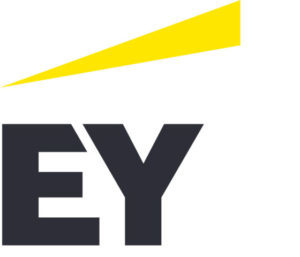Paul Feeko of professional services company EY says the aerospace and defence industries were already facing a recruitment timebomb before the COVID-19 – and companies will have to face up to the reality to be successful.
The COVID-19 crisis has caused unprecedented losses for companies within aerospace, aviation and defence. But Paul Feeko, Americas Aerospace and Defense Leader for EY has said companies were already having to face up to the challenge of attracting top talent before the pandemic.
Feeko said although many of the companies in the sector were deemed to be essential for their economies, they were still facing difficulties operating safely. “They’re still facing disruption and inefficiencies and incremental costs associated with enabling their employees to stay safe, and to operate in a social distancing kind of environment. And then, for back office functions or for companies that are more on the services side, they are facing the need to work remotely for the first time and ensure that critical corporate functions take place even while working remotely.”
Four generations in the workplace
Feeko added that the sector was one of those facing challenges in terms of attracting the brightest talent into the workforce, facing competition from other sectors. He said: “Industries are facing the fact that for the first time maybe ever, we have four very distinct generations in the workforce at Baby Boomers to Generation X to Millennials to Post Millennial.”
He added that companies would have to adapt to the changing needs of workers: “The needs of that new workforce are changing very, very rapidly and there they are forcing many companies to grapple with with the kinds of issues they’ve never had to grapple with before, whether it’s gig workers or creating a more flexible work environment, dealing with people who want to work remote who want to work remote or partially remote even before the COVID crisis, more mobile careers.”
Recruitment timebomb
Feeko said there was a generational shift with younger workers more likely to change their companies during their careers. He added that technology had been changing the way the industries work before the advent of COVID-19. Feeko explained: “Workforces really can adapt and we adopt new technologies quicker than we adapt them quicker than we adapt processes and working environments.”
He added that keeping up with the pace of change had been difficult and the sector still had to address the issue of an ageing workforce and competition from other sectors.
“First of all, you know aerospace and defence is a place that absolutely critically requires the best and brightest thinking in terms of engineering and innovation. It wasn’t that long ago when you would think about these sectors as being the place where the brightest minds that innovate, create the future.”
He added that, for a number of years now, the sector has had to compete with the tech sector, healthcare sector, health technology and gaming companies which also attract younger talent.
“The workforce has aged and I think that’s probably the most long term and critical challenge that the sector faces and there is already a significant shortage of tech savvy workers in core areas like engineering but even the more digitally savvy workforce it’s required across all corporate function is is found.”
Companies must face reality to be successful
He said while COVID-19 may put a temporary brake on major shifts within the workforce, ultimately the companies that will be successful will be those facing up to the reality of the recruitment timebomb.
He explained: “We’ve still got an environment where I think it’s something like 10,000 Baby Boomers turn 65 every day and aerospace defense, at least in the US, the average age of home workers in the, in the sector is 47, I think, compared to the tech industry at 40 so these issues are not going away and even if we are in aerospace and defense lucky enough to see a bit of a delay, and a period where you know maybe talent is a little bit more available because there’s disruption and other sectors.”


